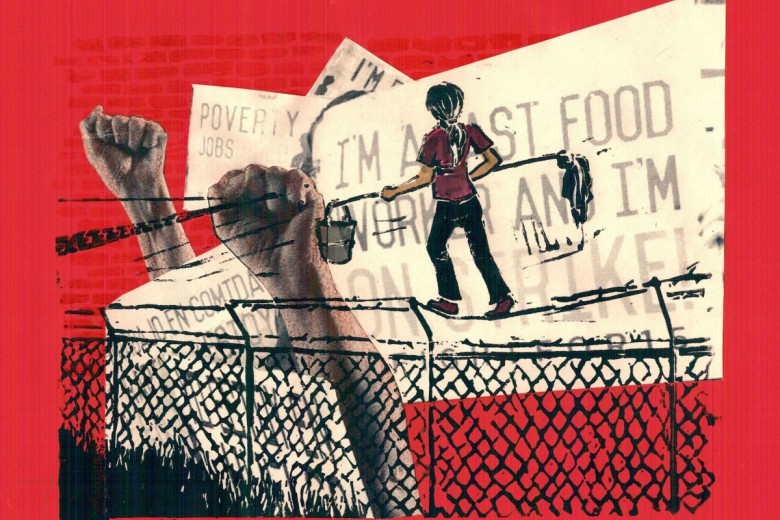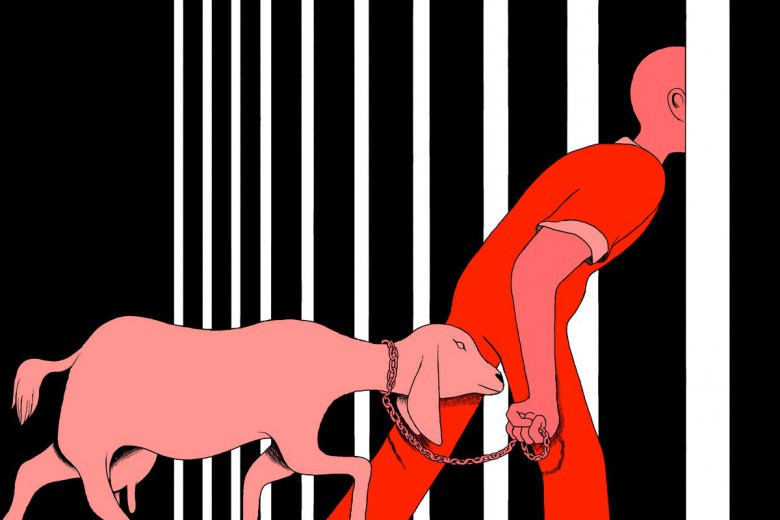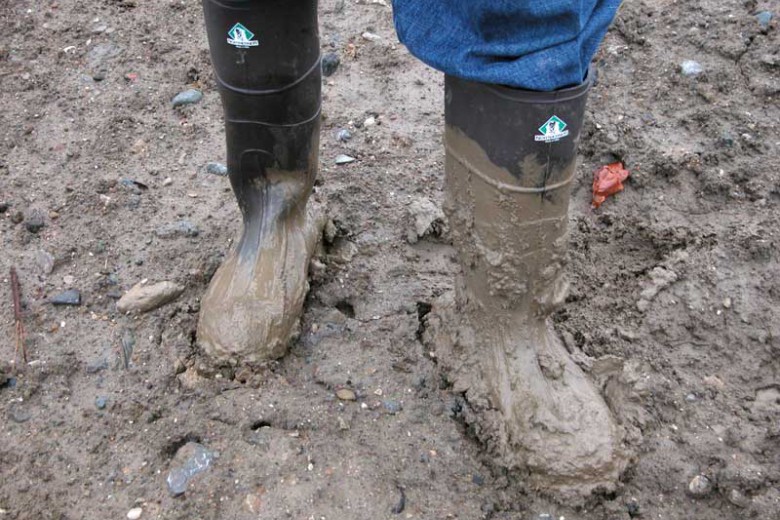
What is it about Liliany Patricia Obando Villota that the Colombian government finds so intimidating?
A single mother of two, an emerging academic at the National University of Colombia, a documentary filmmaker, and until recently, the international spokesperson for FENSUAGRO, Colombia’s largest rural-based labour organization, Obando was declared a “potential enemy of the state” by the attorney general on May 25, 2008. Then she was arrested — in front of her two children and elderly mother at their Bogota apartment — on August 8, 2008 by the Anti-Terrorism Unit of the Colombian National Police. She now awaits trial at a maximum security prison in Bogota on charges of sedition and “managing resources related to terrorist activities.”
Obando is a prisoner of conscience. Her now-interrupted doctoral studies of atrocities committed against labour activists are not popular with the paramilitaries, who have twice threatened her life. And it is unlikely that her one-hour documentary on the destructive effects of the American-funded aerial spraying of coca fields will ever be shown on Colombian TV. Her family remains under surveillance.
Colombia remains the world’s pre-eminent killing ground for union activists, and FENSUAGRO, boasting a rural membership of 100,000, is the primary target of these attacks, having lost 500 of its organizers to them over the last 30 years. Under Obando’s extraordinary stewardship as the organization’s international voice, FENSUAGRO has become not only renowned, but intimately linked with the human rights defence of indigenous peoples, Afro-Colombians and peasant farmers who have been internally displaced in Colombia. These internal refugees, 4.2 million in all, constitute an internally displaced population second only to that of Sudan, and 80 per cent of them are women and children.
Obando’s name surfaced for investigation after the incursion into Ecuador on March 1, 2008, that killed FARC leader Raul Reyes and yielded up his laptop computer. If the government is to be believed, Reyes’ laptop has revealed a treasure trove of names of “potential enemies of the state” to be rounded up. Interpol, however, reports that the forensic evidence shows that 48,055 separate files were created, modified or deleted after access to the computer by Colombian authorities before their release, leading many to suspect that the names appeared much too conveniently.
Among those caught in the net are prominent opposition critics of the government, journalists and academics, a Jesuit social justice centre, and Obando herself. Yet some of those named, like prominent Colombian economist Hector Mondragón, now in hiding, condemn the FARC for strengthening the government’s hand against civil dissent in the name of security.
Reyes’ computer also purportedly identified Canadian unions like my own, the Ontario Secondary School Teachers’ Federation. Having funded Obando’s research, film, human rights workshops, brochures, rehabilitation of FENSUAGRO’s organic farm in Viota, and a recent study of the impact of violence against women, we are now apparently under investigation by the International Criminal Court for “providing money to a terrorist group” (El Tiempo, August 29, 2008). This in spite of evidence to the contrary: reports, receipts, the actual materials, and my own visits to Colombia to see our results firsthand. El Tiempo, citing “intelligence agents” suggests further that Obando’s trips abroad were financed by the FARC, “who gave her the responsibility of coordinating its cells in Canada.” I know Liliany well. Of her three trips to Canada, I personally paid for one and closely managed her itinerary.
The Colombian state’s close ties with the paramilitaries — the trail of blood reaches so far as to touch the vice-president’s office — have compromised its free trade initiatives. The discovery of Reyes’ magical computer, coupled with the headline-grabbing Ingrid Betancourt affair, has given President lvaro Uribe renewed opportunities to seek foreign investment and international legitimacy.
Liliany Obando can expect to sit in jail for some time.
To learn more about the Free Liliany Obando campaign, go to www.colombiasolidarity.net.




_780_520_90_s_c1.jpg)

